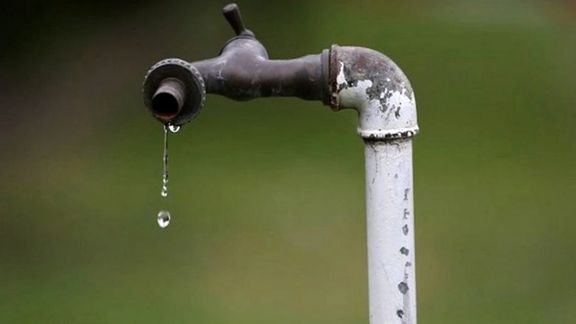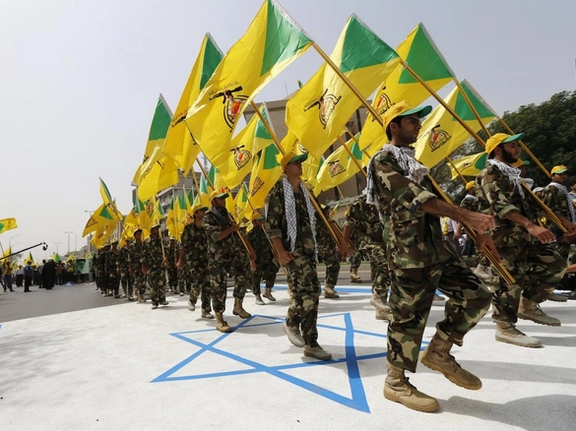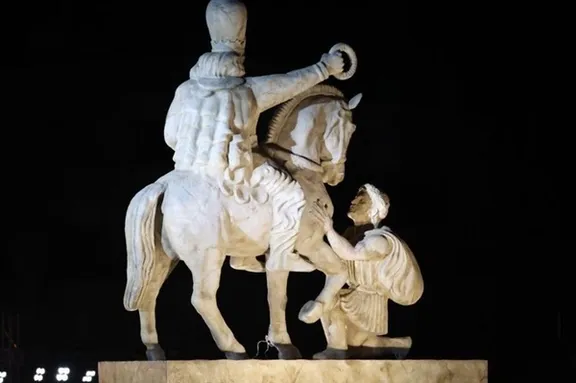Iran envoy for President Donald Trump from 2020 to 2021 Elliott Abrams and Ambassador Dennis Ross, a former Middle East adviser to Republican and Democratic administrations, are veterans of decades of US diplomacy with long records in the fraught region.
Both see the Islamic Republic as threat to US national security, the country's military presence in the Middle East and the security of its Arab partners and Israel.
The first direct blows between Israel and Iran last year transformed their fight from one in the shadows and via Iran's armed allies like Hezbollah, they said, into a face-to-face showdown culminating in a June war which dealt Tehran punishing blows.
A ceasefire enforced by Trump after US strikes hit three key Iranian nuclear sites is likely to hold for the foreseeable future, they predicted.
In a panel moderated by Bozorgmehr Sharafedin, Iran International's head of Digital, they said a weakened Tehran is salving its wounds and focusing on its internal grip while Israel relishes calm after a Gaza ceasefire mediated by President Trump.
"Lacking air defenses, (the Iranians) know that a great deal more damage can be done by Israel, and I don't think the Israelis are looking for it right now either," Abrams said. "They've having gotten the hostages back from Gaza. They need to let their military rest, rebuild, rearm."
Israeli strikes likely damaged Iran's air defense infrastructure. Iran's foreign minister Abbas Araghchi said this week Tehran had rebuilt its missile power beyond pre-war levels and that it seeks peace through diplomacy, but Iranians must not fear war.
"I would be quite surprised actually to see war with one exception, Abrams added. "If the regime in Tehran decides we must quickly, as quickly as possible, rebuild the nuclear program, then they're going to get hit again."
Iran denies seeking nuclear weapons but Israel and Western countries doubt its intentions. Trump seeks to resume talks halted by the June conflict but Tehran rejects US demands it negotiate over its missiles or support for armed regional allies.
"The fact is, Iran has no air defense today," Ross said. "If they were to rush for a nuclear weapon right now, that would invite either an Israeli response or an American one, and I'm quite certain that the Iranian leadership knows better than that."
Ross served as director of the policy planning staff of the US State Department under President George H.W. Bush, helping guide diplomacy as perennial US adversary the Soviet Union unraveled and toward Saddam Hussein's Iraq in the 1991 Gulf War.
"Right now where we are with the regime, talk tough, talk bravely, but recognize the reality is," he added. "The last thing you need is another fight with the Israelis, and you need even less of one with the United States."
Obliterated, exaggerated
US attacks on June 22 hit the Fordow, Natanz and Esfahan nuclear sites in raids Trump has repeatedly said "obliterated" Iran's nuclear program.
While he asserted Tehran is now focused on survival and not resuming its activities, Trump has pledged to attack again if it does.
Iranian officials this week vowed to build the program back stronger than before.
The head of UN nuclear watchdog Rafael Grossi said on Friday that Tehran still possesses enriched uranium sufficient, should Iran choose and be able to enrich it further, to make several nuclear weapons.
Both former senior officials said that while the US and Israelis strikes had dealt Iran significant setbacks, Trump was dealing in hyperbole.
"It's premature. It's exaggerated," Abrams said. "Meaning, there is something there. He's just making too much of it."
"It's a real change. And I think Trump is right to draw attention to that," Abrams said. "To go further and say, you know, it's the end of conflict and peace in our time, no that goes too far. The regime is still there. Their military is still powerful. They have a dangerous ballistic missile program."
Abrams, a fellow for Middle Eastern studies at the Council on Foreign Relations (CFR) in Washington, supports robust US engagement in the region and the encouragement of democratic transitions.
A neoconservative, he was a prominent advocate of preemptive military action against Iraq during George W. Bush’s presidency.
Ross said Trump's military intervention marked an important paradigm shift, transmitting to the region that the United States would check Iranian influence.
"What he did is he signaled, 'you don't have impunity any longer.' Now that was really important for the region, because it said, okay, we really don't have to be so afraid of the Iranians anymore."
Ross is fellow at Washington DC thinktank the Washington Institute and served as a presidential aide in unsuccessful bids by Barack Obama to resolve the Israeli-Palestinian conflict.
He has advocated an active and multi-pronged US engagement in the Mideast and the world not limited to ideological or military approaches and co-founded the advocacy group United Against a Nuclear Iran in 2008.
"This is a regime that is focused on survival," Ross asserted. "It always has been, but that's the first priority. It feels it can manage and sustain control, which is another reason why they're not looking for trouble on the outside right now, because that could actually endanger them more on the inside."















